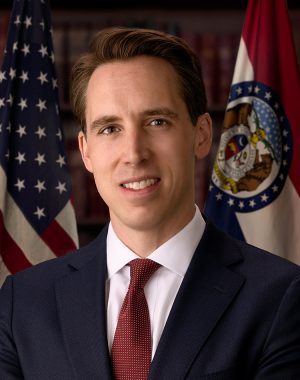
As outlined, the bill would mirror the Children's Online Privacy Protection Act in applying to games "targeted at those under the age of 18" and "games with wider audiences whose developers knowingly allow minor players to engage in microtransactions." Under the bill, such games would not be allowed to have loot boxes, defined here as "microtransactions offering randomized or partially randomized rewards to players."
The bill summary also takes aim at so-called "pay-to-win" mechanics that "manipulate a game's progression system... to induce players to spend money..." or which alter the "competitive balance between players of multiplayer games." The Federal Trade Commission and state attorneys general would be able to enforce the law.
"When a game is designed for kids, game developers shouldn’t be allowed to monetize addiction," Hawley said in a statement. "And when kids play games designed for adults, they should be walled off from compulsive microtransactions. Game developers who knowingly exploit children should face legal consequences."
In a statement, the ESA noted that "numerous countries, including Ireland, Germany, Sweden, Denmark, Australia, New Zealand, and the United Kingdom, determined that loot boxes do not constitute gambling. We look forward to sharing with the senator the tools and information the industry already provides that keeps the control of in-game spending in parents’ hands. Parents already have the ability to limit or prohibit in-game purchases with easy to use parental controls."
Hawley's declaration is the most serious sign of federal action on randomized loot boxes since they became a somewhat notable political issue in late 2017. Senator Maggie Hassan (D-N.H.) called for an industry review of loot box practices over a year ago but stopped short of introducing any legislation. Hassan also took the issue up with the FTC, which announced in February that it would convene a public workshop on the issue later this year.Despite Hawley's announcement, though, the Protecting Children from Abusive Games Act still has a long way to go before becoming law. First, the summary announced today would have to be translated into actual legislative language. That bill would then have to proceed through committee (likely following hearings), then pass the House of Representatives and Senate before being signed by the president. None of that seems especially urgent or likely in the near term, given other political priorities and continuing gridlock in the legislature.
State-based legislative efforts to rein in loot boxes in Washington state, Hawaii, and Indiana have yet to lead to any actual laws on the books. And despite the ESA's citation of national governments that have explicitly okayed loot boxes, gaming commissions in the Netherlands and Belgium have already ruled that loot boxes constitute illegal games of chance.In September, Washington state joined with 15 foreign countries in a declaration expressing concern "with the risks being posed by the blurring of lines between gambling and other forms of digital entertainment such as video gaming."
Listing image by ThinkGeek
reader comments
350